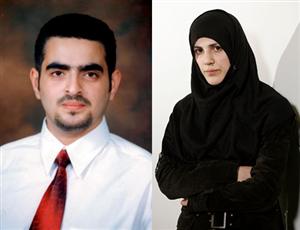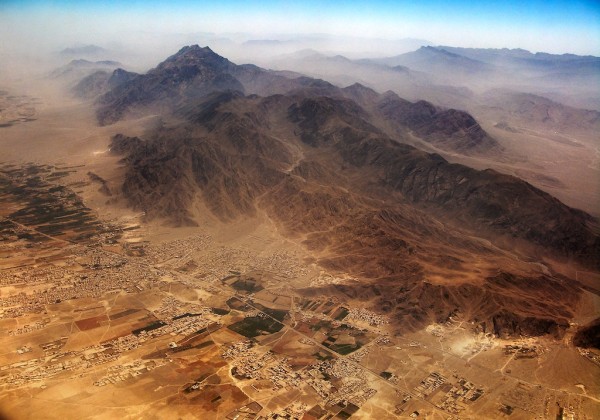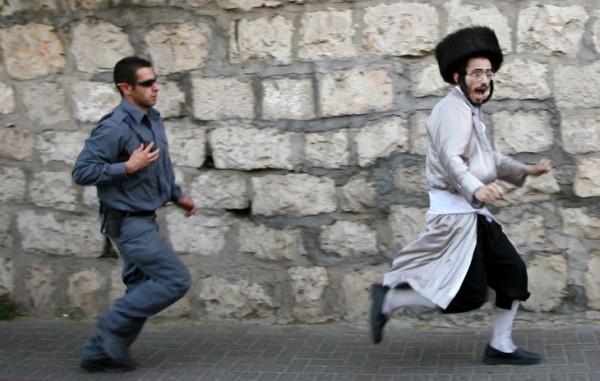Unholy alliance at war with Obama’s foreign policy
![]() Mr Cheney’s outburst [as he recently accused Barack Obama of being soft on terrorism]… is part of a bigger story in Washington. The aim reaches beyond self-exculpation for his lead role in the calamities of George W. Bush’s administration. It represents the sharp tip of a broader assault on Mr Obama’s foreign policy.
Mr Cheney’s outburst [as he recently accused Barack Obama of being soft on terrorism]… is part of a bigger story in Washington. The aim reaches beyond self-exculpation for his lead role in the calamities of George W. Bush’s administration. It represents the sharp tip of a broader assault on Mr Obama’s foreign policy.
The proposition is that the world’s superpower has a binary choice – between aggression and appeasement – in the conduct of foreign policy. It can get its way by beating up enemies and bullying friends; or it can sacrifice the national interest to weak-kneed engagement and soggy multilateralism. Mr Obama has chosen appeasement.
On one level, there is nothing new in the charge. Republicans have accused the Democrats of being weak on defence ever since the end of the second world war, even if the attacks have rarely been infused with as much partisan vitriol. Soft on terrorism has become a substitute for soft on communism.
For all that, one might have thought that the events of the past few years would have given even the most partisan ideologues on the right pause for thought. The war in Iraq did more than any military adventure since the Vietnam war to drain American power and prestige. It was Mr Cheney and his chums who allowed the Taliban to return to Afghanistan and Mr bin Laden to escape. How did any of this make America safer?
The critics have moved on. The underlying charge now is that Mr Obama has decided that the US should accommodate the big shifts in global power that presage a relative weakening – relative is a vital qualification – in US primacy. Simply put, the president stands accused of standing idly by while other nations rise. America should be blocking the advance of future adversaries rather than inviting them to join a new global order.
Beguiling though the thought might be that history can be stopped in its tracks to preserve the west’s global hegemony for another couple of centuries, there is no accompanying explanation of how precisely Mr Obama can turn back the geopolitical tides. [continued…]
Editor’s Comment — At his inauguration, President Obama evinced an understanding that the primary challenge facing America is not whether it can retain its power but whether it has the flexibility to adapt — as he said: “the world has changed, and we must change with it.”
With the New American Century having lasted less than a decade, Obama recognized that the neoconservative vision of American hegemony was a fundamentally unrealistic imposition of the past on the present. But he has yet to clearly articulate a new vision of America’s role in the world and all too frequently falls back on familiar references to America’s greatness.
The strange thing about America’s enduring imperial pretensions is that they are rooted in an underlying sense of inferiority. What other nation engages in such frequent declarations about its own virtues? It’s as though in the absence of continuous self-praise, American pride would rapidly melt into a pool of self-doubt.
For America to meaningfully engage with the world, it also needs to engage with itself. In that process it must begin to move towards an era of national adulthood where it can look in the mirror and see its real face, without having to cling to a childish fantasy.

 ass Sunstein has long been one of Barack Obama’s closest confidants. Often mentioned as a likely Obama nominee to the Supreme Court, Sunstein is currently Obama’s head of the Office of Information and Regulatory Affairs where, among other things, he is responsible for “overseeing policies relating to privacy, information quality, and statistical programs.” In 2008, while at Harvard Law School, Sunstein co-wrote a truly pernicious paper proposing that the U.S. Government employ teams of covert agents and pseudo-“independent” advocates to “cognitively infiltrate” online groups and websites — as well as other activist groups — which advocate views that Sunstein deems “false conspiracy theories” about the Government. This would be designed to increase citizens’ faith in government officials and undermine the credibility of conspiracists. The paper’s abstract can be read, and the full paper downloaded,
ass Sunstein has long been one of Barack Obama’s closest confidants. Often mentioned as a likely Obama nominee to the Supreme Court, Sunstein is currently Obama’s head of the Office of Information and Regulatory Affairs where, among other things, he is responsible for “overseeing policies relating to privacy, information quality, and statistical programs.” In 2008, while at Harvard Law School, Sunstein co-wrote a truly pernicious paper proposing that the U.S. Government employ teams of covert agents and pseudo-“independent” advocates to “cognitively infiltrate” online groups and websites — as well as other activist groups — which advocate views that Sunstein deems “false conspiracy theories” about the Government. This would be designed to increase citizens’ faith in government officials and undermine the credibility of conspiracists. The paper’s abstract can be read, and the full paper downloaded, 
 oft-spoken and composed, but unmistakably angry, the wife of the suicide bomber who killed himself and seven employees of the CIA in Afghanistan on Dec. 30 says flatly, “My husband was anti-American; so am I.” About that, there are no regrets. In an exclusive interview Thursday, Defne Bayrak, 31, spent more than an hour at the offices of Newsweek Türkiye in Istanbul talking about her husband, Dr. Humam Khalil Abu-Mulal al-Balawi; his beliefs; what he may have been offered by the CIA to work as a double agent on the trail of Al Qaeda’s top leadership; and what she heard from those apostles of jihad who ultimately inspired him to kill and die.
oft-spoken and composed, but unmistakably angry, the wife of the suicide bomber who killed himself and seven employees of the CIA in Afghanistan on Dec. 30 says flatly, “My husband was anti-American; so am I.” About that, there are no regrets. In an exclusive interview Thursday, Defne Bayrak, 31, spent more than an hour at the offices of Newsweek Türkiye in Istanbul talking about her husband, Dr. Humam Khalil Abu-Mulal al-Balawi; his beliefs; what he may have been offered by the CIA to work as a double agent on the trail of Al Qaeda’s top leadership; and what she heard from those apostles of jihad who ultimately inspired him to kill and die.

